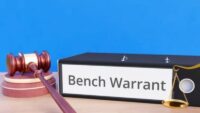Would it come as a surprise if we tell you that resume fabrication is excruciatingly common? Probably not. Chances are you know a person or two who lied on their resume.
In a 2022 survey conducted by ResumeLab, 93% of the respondents revealed that they knew at least one person who lied on a resume. Moreover, 36% of the respondents admitted to lying on a resume of their own!
The same survey indicates that the most common resume lies are related to work experience (25%), job duties (21%), and employment dates (16%). Unsurprisingly, the ones who get caught are either fired or passed up on.
This begs the question of how employers go about unveiling resume fabrication. Can a background check reveal past employers? What other information does it reveal?
You’ve got the questions; we’ve got the answers!
Can a Background Check Reveal Past Employers?
No, background check can put together a list of a candidate’s previous employers. However, an employment verification check conducted by an FCRA-compliant screening company can detect falsehoods in a candidate’s resume.
What Information Can a Background Check Reveal?
The answer to this question is a bit complicated as there are many types of background checks that can be conducted, from pre-employment background checks to criminal history background checks. Each type of background check reveals a different set of information.
A standard criminal history background check won’t shed light on a candidate’s work history. Instead, it will merely uncover conviction records.
On the other hand, an employment verification check provided by an FCRA-compliant screening company can help employers pinpoint lies in the work history section of a candidate’s resume, but it won’t pull up a list of previous employers.
The majority of employers will attempt to verify a candidate’s work history one way or another before finalizing an offer. Some employers choose to conduct background checks internally using their HR department, while others resort to third-party screening companies.
The bottom line is that anything you write in your resume will most likely undergo a verification process. So, it’s very important that you be completely transparent in your resume so that you don’t risk getting rejected.
How Do Pre-Employment Verification Checks Work?
A pre-employment verification check serves as a means of verifying the information in the work history section of a resume. However, it doesn’t pull up a list of the candidate’s past employers.
Pre-employment verification checks are conducted by specialized screening companies. Seeing as background checks are subject to the Fair Credit Reporting Act (FCRA), screening companies must be FCRA-compliant and have to adhere to the requirements of the Equal Employment Opportunity Commission (EEOC).
The way pre-employment verification checks work is simple. The screening company will simply review the information in the resume and verify it by contacting the employers that the candidate has listed. The screening company will most likely inquire about the following pieces of information:
- Dates of employment
- Titles and positions
- Job responsibilities
- Reasons for resignation/termination
- Eligibility for rehire
- Salaries
If any of these pieces of information is fabricated, an employment verification check will uncover the truth and report it to whoever requested the background check.
It’s worth noting that some employers may refuse to disclose information regarding any of the above listed pieces of information. For instance, an employer may refuse to share the reason why the candidate resigned or was terminated.
Employers may not want to disclose such information because they can be sued for defamation if they’re unable to prove what they said about the candidate, assuming what was said is negative.
This is also why most employers who run verification checks tend to avoid inquiring about subjective opinions and focus primarily on point-of-fact information such as job titles and dates of employment.
Another thing you need to keep in mind is that some states have laws that dictate the type of information that past employers can share about their former employees. So with that in mind, you have to familiarize yourself with the laws in your state.
Can You Run an Employment Verification Check on Yourself?
Absolutely! Running an employment verification check on yourself is one of the best ways to prevent unintentional deception and avoid potential job application problems. This is especially the case if you haven’t updated your resume in a while.
There are several ways you can go about running a work history verification check on yourself. The first option is through a state unemployment office. This option is perfect for you if your work history is limited to one state.
Through the state’s unemployment office, you can obtain work-related records that go back as far as 10 years. All you’ll need to do is submit a self-request for records.
If your work history isn’t limited to a single state, then your best bet is to submit a request for your social security earnings information through the social security administration.
Upon approval, you’ll be provided with information about previous employers, employment dates, salaries, and employer addresses. Note that you’ll need to pay a small fee to request your social security earnings information.
The third and least convenient option is through viewing your tax returns. Tax returns can provide information about previous employers and wages, but it’s not the most convenient option, seeing as it doesn’t shed light on employment dates.
What If You Forget to List a Job on Your Resume?
It’s fine if you forget to list a job you’ve previously held. As we’ve established, there isn’t a central database that employers can resort to to find a list of all the positions you’ve held throughout your life.
We’ve underlined the word “forgot” to emphasize that failing to mention a job title that you’ve previously held shouldn’t be done intentionally. Granted, employers can’t pull up a list of all your previous jobs, but they pay close attention to employment and departure dates.
If your resume highlights significant gaps in your work history, employers can take this as a red flag. For instance, they can assume that you were out of work during these gaps, which doesn’t look good for you.
If you forgot to list a job you’ve held in the past, honesty is the way to go! Don’t try to cover up any work history gaps by lying, as it reduces your chances of landing the position you’re applying for.
What Are the Laws Regarding Employment Verification?
There are four laws that constitute employment verification checks:
- Fair Credit Reporting Act (FCRA)
- Health Insurance Portability and Accountability Act of 1996 (HIPAA)
- Civil Rights Act of 1964 (Title VII)
- S. Immigration Law
Fair Credit Reporting Act
The FCRA serves as a means of protecting consumers’ privacy with respect to consumer reporting agencies gathering information and handing it to employers.
Simply put, a consumer reporting agency cannot conduct a verification check without notifying the candidate in writing and obtaining their signature.
Health Insurance Portability and Accountability Act
When verifying a candidate’s employment history, if any information regarding the candidate’s health or disability comes into the picture, employers are prohibited from sharing this information under the HIPAA.
Title VII of the Civil Rights Act
This act is enforced by the Equal Employment Opportunity Commission (EEOC). It serves as a means of preventing discrimination in relation to candidates’ protected characteristics (i.e., race, color, religion, sex, national origin, age, genetic formation, and disability).
U.S. Immigration Law
The U.S. Immigration Law prohibits employers from hiring new employees without verifying their eligibility for employment. This is done by completing Form I-9 and reviewing the applicant’s identity documents.
Do All Employers Resort to Screening Companies?
No, not all employers resort to third-party background screening companies. Some employers choose to conduct verification checks internally using their HR department.
They do so by contacting the workplaces listed on the candidate’s resume and gathering as much information as needed.
They typically start by confirming the candidate’s employment dates and job titles. Then, they may confirm other pieces of information like job responsibilities and salaries.
It’s worth noting that some employers won’t respond to inquiries about former employees directly. Instead, they will most likely ask you to refer to a third-party verification company with which they’ve partnered.
To obtain information from a verification company, you’ll need to set up an account with the company and pay a small fee that’s typically under $100.
This process can take a lot of time and effort if the candidate has a rich work history. The process can involve multiple attempts and callbacks, which isn’t very convenient for a lot of employers.
This is mainly why some employers choose to partner with a third-party screening company to do all the verification work on their behalf.
How Long Do Employment Verification Checks Take?
The time it takes to run a verification check on a candidate varies depending on whether the employer runs it internally using their HR department or externally using a screening company.
If the employer chooses to run the check internally, it can take weeks to complete the check, which is bound to hinder the hiring process. And as you probably know, the longer it takes to hire an applicant, the higher the chances the applicant will look for a job elsewhere.
Factors that can affect the screening process if it’s run internally include:
- The number of applicants.
- The extent of each applicant’s work history.
- The number of members in the HR team.
- The ease with which they obtain information from each applicant’s previous employers.
On the other hand, if the employer runs the verification checks externally with the aid of a third-party screening company, the process will take only a few days. This approach ensures a quicker, more efficient hiring process.
How Many Years of Work History Do Employers Verify?
The answer to this question varies from one job to another. If we’re talking about an entry-level position, employers will verify the last three years of a candidate’s work history.
Per contra, if we’re talking about a senior-level position, employers are likely to verify the last 5-7 years of a candidate’s work history. These numbers aren’t set in stone, though. Different jobs have different verification requirements.
For licensed professionals like teachers, doctors, and nurses, verification will go back as far as employment since licensing.
Bear in mind that employment verifications are considered neutral in accordance with the Federal Trade Commission, and so there are no restrictions with regard to how far back they can go.
On the other hand, criminal history background checks can only go back as far as 7 years, seeing as their results can be viewed as positive or negative.
Summary
A standard background check cannot reveal past employers. However, employers can use a pre-employment verification check to verify a candidate’s work history.
Basically, during the pre-employment verification check, the employer reviews the work history section in the candidate’s resume and contacts the listed employers to verify the candidate’s work history.
That being said, a pre-employment verification check cannot pull up a list of previous employers.
Employment verification can take days or weeks, depending on whether it’s conducted externally using an FCRA-compliant screening company or internally using an HR team, respectively.
Depending on the position the candidate is applying for, the years that need to be verified can vary. For entry-level positions, 3 years are usually enough. For senior-level positions, 5-7 years of work history verification are required. As far as licensed professionals, verification can go as far as employment since licensing.
Related Posts
![Best Personal Background Check [Our Reviews and Comparisons]](https://backgroundhawk.com/wp-content/uploads/2021/03/Best-Personal-Background-Check-min-150x150.jpg) Best Personal Background Check [Our Reviews and Comparisons]
Best Personal Background Check [Our Reviews and Comparisons] How Do You Know if You Have a Secret Indictment?
How Do You Know if You Have a Secret Indictment? Do Arrests Without Conviction Show Up on Background Check?
Do Arrests Without Conviction Show Up on Background Check? How Can You Fail a Background Check for a Gun?
How Can You Fail a Background Check for a Gun? How Long Does It Take to Get Fingerprinted?
How Long Does It Take to Get Fingerprinted? What Is a Capias Warrant
What Is a Capias Warrant How Much Jail Time for a DUI Warrant
How Much Jail Time for a DUI Warrant Can You Get on a Plane With a Warrant?
Can You Get on a Plane With a Warrant? How Long Does It Take to Get a Warrant?
How Long Does It Take to Get a Warrant?![Best Tenant Background Check [Our Reviews and Comparisons]](https://backgroundhawk.com/wp-content/uploads/2021/02/Best-Tenant-Background-Check-min-150x150.jpg) Best Tenant Background Check [Our Reviews and Comparisons]
Best Tenant Background Check [Our Reviews and Comparisons]

